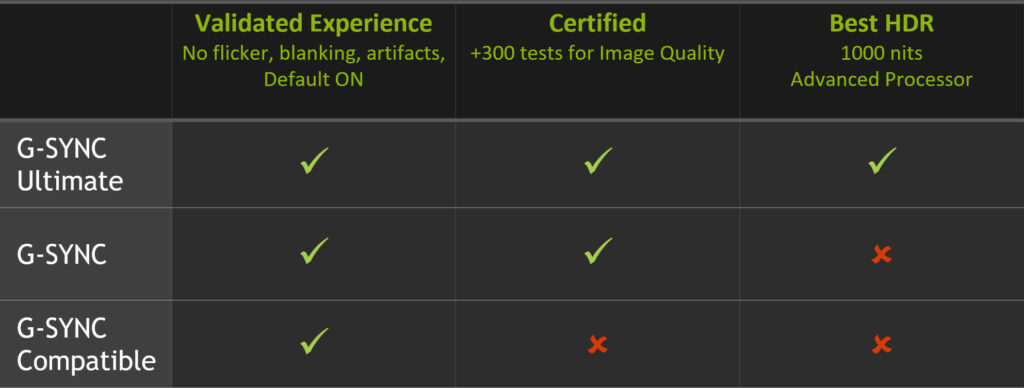Gamers have long debated the question of monitors vs TVs.
which one is best for gaming. Both have their advantages and disadvantages, but which one is ultimately better for gaming?
In this blog post, we’ll explore the pros and cons of each option and help you decide which is right for you. So read on to learn more!

Monitors VS TV: Which One Should You Choose For Gaming
We’ve gathered the most important terms you’ll want to know about TV and monitor gaming in case you’re new to all of this.
Refresh Rate:
Monitors nowadays are more than capable of providing a much smoother experience without any annoying screen tears or artifacts.
This is because they have higher refresh rates which eliminate slow response times from occurring in the first place, while also making it so you don’t notice those little movements on your TV when watching something fast-paced like sports games!
Resolution:
A measure of how many pixels are used to make up an image.
The greater the number of pixels, the higher the resolution and the more detailed images will be.

Aspect Ratio:
Refers to how wide a screen is in comparison to its height.
Before5 widescreen aspect ratios came about, every screen was 4:3 or 1.33:1.
Widescreen displays have become increasingly popular since the early 2000s, bringing aspect ratios such as 16:9 and 21:9 to mainstream attention.
Response Time:
The time it takes a pixel to transition from one color to another.
As we mentioned before, the slower response times on TVs can be really annoying and even distracting when playing your favorite multiplayer games with friends.
Input Lag: This refers to the delay between pressing a button and seeing the result appear on the screen.
Monitors aren’t perfect, but their input lag is far less than that of TVs and other display types.
Freesync VS G Sync
This is another argument gamers have when deciding whether or not to buy a monitor.
Both are similar in that they’re both designed to eliminate screen tearing, but Freesync runs off of your graphics card’s standard output while G-sync requires the card to have its built-in chip that syncs with the monitor.
This feature is very important to solve the overdrive issue in monitors.

Monitors VS TV: Which One Is Better For You?
With all of this in mind, which is better for gaming – a monitor or TV? It ultimately depends on what you need out of your display.
While some users want the best possible image quality and performance from their displays, others are more concerned with a sleek design and easy-to-use features.
Here are the major differences between the two, so you can better determine which one is right for you!
Advantages Of Monitors:
- Monitors provide a higher level of accuracy than TVs, making them ideal for competitive multiplayer gaming or professional design work.
- Monitors typically have more screen real estate than TVs, allowing them to accommodate more windows and programs at the same time.
- Easier to connect multiple monitors since they can all be connected using a single cable (Display Port or HDMI).
- More options for connectivity include DVI, Display Port, and USB connections.
- Monitors typically take up less space than TVs.
- Also, In these days, there are lots of good monitors with faster response rates are available. So, this is the biggest advantage of using a monitor.
Disadvantages Of Monitors:
- Monitors will not provide the same level of immersion as TVs due to their smaller screens.
- Monitors require extra space for attachments like speakers, keyboards, and mice which can take up even more space than the monitor itself!
Advantages Of TVs:
- Cheaper than monitors.
- Easier to transport than a monitor, which will typically require at least 2 people to move safely.
- More easily accessible ports on the back of TVs, including HDMI and composite connections.
- Better for watching videos or TV shows due to their larger screen size and picture quality.
- Better for low-profile setups where monitors might take up too much room.

Disadvantages Of TVs:
- Slower response times on TVs can be distracting when playing fast-paced multiplayer games.
- Lower refresh rates on TVs often result in blurring, stunted movement, and ghosting.
- Some models have limited viewing angles which can create distorted images or color changes.
- Poor image quality on some TV models doesn’t properly display text or images.
Conclusion:
So, in conclusion, if you just want the best value for your money and don’t mind sacrificing performance or ease of use, a TV may be the better option for you.
If you are looking to get the most out of your display and want the best possible performance and color accuracy, a monitor may be the better option for you.
There isn’t anything wrong with having both types of displays either – if your TV doesn’t have ports that will allow you to connect your PC, there’s nothing wrong with having an extra display to hook up when you’re gaming!
